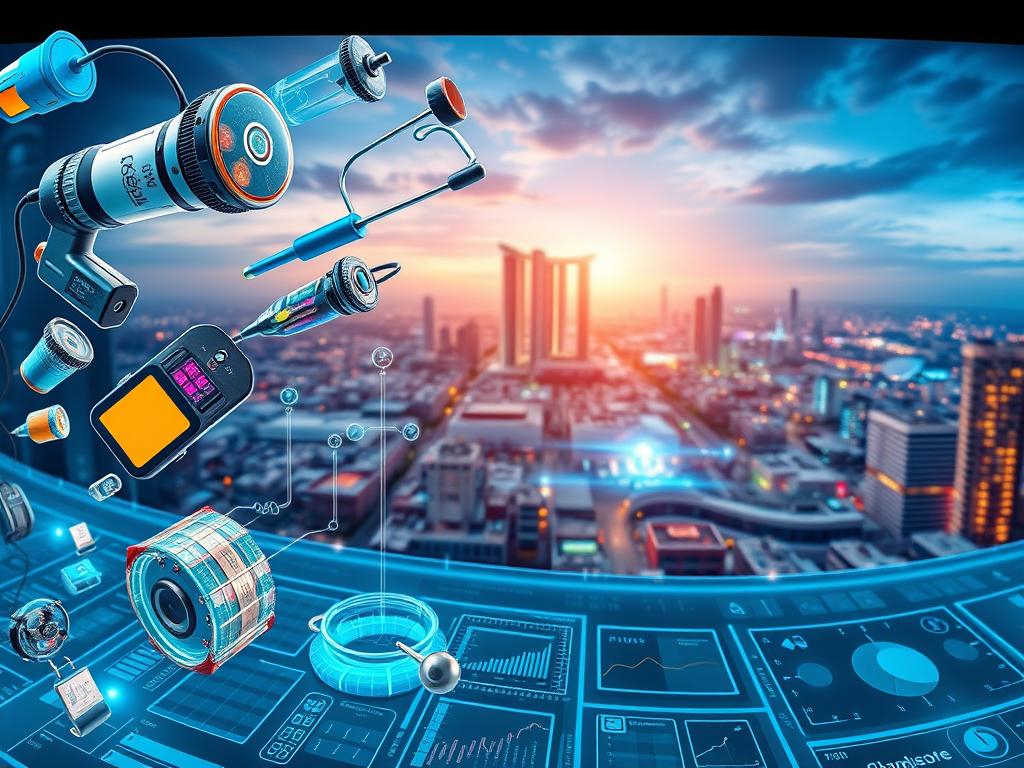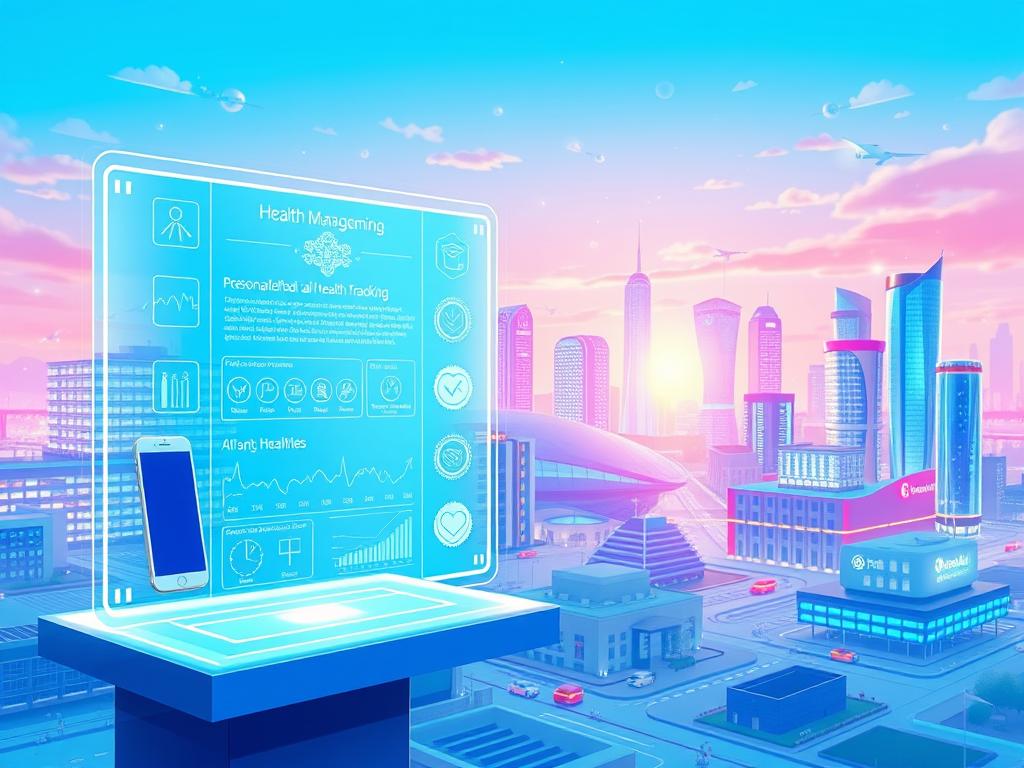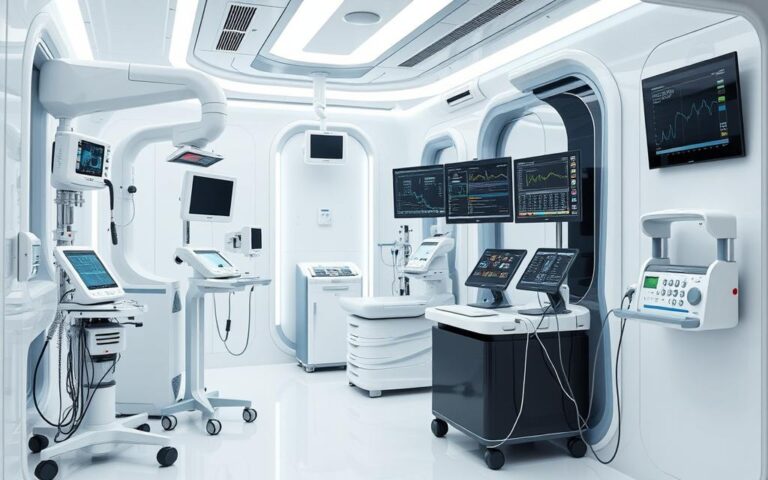What is Health Management and Technology? An Overview
Health management and technology are reshaping modern healthcare delivery. This field merges digital solutions with management principles to improve patient care and medical operations.
Healthcare technology systems blend advanced hardware, software, and processes to streamline medical information. Experts like M. Beth Shanholtzer have played key roles in developing these crucial technological frameworks.
Digital platforms now enable real-time data sharing and enhance diagnostic accuracy. They also improve overall patient experiences in healthcare settings.
Healthcare technology systems are now essential in modern medical practice. They’re no longer optional extras but core components of effective healthcare delivery.
Implementing these technologies requires careful planning and continuous adaptation. Medical institutions must invest in robust training programmes and cutting-edge solutions.
This investment helps hospitals and clinics stay competitive. It also ensures they can provide high-quality patient care in today’s digital age.
Understanding Health Management in Modern Healthcare
Healthcare management roles are vital for efficient patient care. The field has changed greatly, using new tech to improve medical operations. Healthcare management is now key to top-notch healthcare delivery.
Defining Healthcare Management Roles
Healthcare management covers many professional duties. These pros ensure smooth operations in medical settings. They work as clinical managers, hospital admins, IT specialists, and quality coordinators.
- Clinical department managers
- Hospital administrators
- Healthcare information technology specialists
- Quality improvement coordinators
Key Responsibilities in Healthcare Management
Healthcare admins have varied tasks that boost org effectiveness. They plan strategies, allocate resources, and use tech to improve patient care.
| Management Area | Primary Responsibilities |
|---|---|
| Operational Management | Coordinating daily clinic operations |
| Financial Planning | Budget development and resource allocation |
| Technology Integration | Implementing electronic health record systems |
Differences Between Management and Administration
Healthcare management and administration have subtle differences. Management focuses on day-to-day operations. Administration deals with broader strategy and org direction.
The U.S. Bureau of Labor Statistics predicts an 18% growth in healthcare occupations from 2016 to 2026, highlighting the expanding importance of these roles.
The Evolution of Healthcare Technology Systems

Healthcare technology has transformed dramatically, driven by digital health solutions. The shift from paper records to advanced computer system management has revolutionised patient care. This evolution has reshaped medical practices, improving efficiency and patient outcomes.
Key milestones in healthcare technology evolution include:
- Introduction of Electronic Health Records (EHRs)
- Advanced diagnostic imaging technologies
- Telemedicine platforms
- AI-driven diagnostic tools
Digital health solutions have significantly improved patient care. Wearable tech now allows for real-time health monitoring. Robotic surgical systems offer unmatched precision in medical procedures.
| Technology | Impact | Patient Benefit |
|---|---|---|
| Telemedicine | Remote Healthcare Access | Improved Accessibility |
| AI Diagnostics | Faster Disease Detection | Early Intervention |
| IoT Healthcare Devices | Continuous Monitoring | Personalised Care |
Future healthcare breakthroughs are set to transform medical care further. These may include nanohealth innovations, brain implants, and networked sensor systems. Such advancements promise to revolutionise healthcare delivery, offering more personalised and effective treatments.
What is Health Management and Technology?
Health management and technology are reshaping modern healthcare. They’re changing how medical professionals deliver patient care. Digital solutions and healthcare management have revolutionised how organisations operate and engage with patients.
Health information technology (HIT) is a powerful tool for improving patient care. It allows healthcare providers to manage medical information more efficiently. This technological approach changes how professionals diagnose, treat, and manage patients.
Integration of Management and Digital Solutions
Management principles and digital technologies create a robust healthcare ecosystem. This integration streamlines patient data management and enables real-time communication between healthcare professionals.
It also enhances decision-making capabilities and improves resource allocation.
- Streamlined patient data management
- Real-time communication between healthcare professionals
- Enhanced decision-making capabilities
- Improved resource allocation
Core Components of Health Information Technology
Modern health information technology includes several critical components. These drive patient care improvement:
- Electronic Health Records (EHR): Comprehensive digital patient profiles
- Clinical Decision Support Systems
- Health Information Exchange Networks
- Telemedicine Platforms
Impact on Patient Care Quality
Advanced health information technology significantly enhances patient care quality. It gives healthcare professionals instant access to comprehensive medical histories. This enables more personalised and precise medical interventions.
Technology is not just changing healthcare—it’s revolutionising how we approach patient treatment and management.
The future of healthcare depends on sophisticated health information technology systems. These systems will prioritise patient outcomes and operational efficiency.
Digital Transformation in Healthcare Management
The healthcare industry is undergoing a remarkable digital transformation. It’s reshaping patient care and organisational practices. Digital innovation is revolutionising healthcare delivery and management, with a 10.4% growth rate from 2016 to 2020.
Key aspects of digital transformation in healthcare include:
- Real-time monitoring of vital health indicators
- Automation of critical administrative tasks
- Enhanced data collection and analysis
- Improved patient engagement platforms
Healthcare innovation is changing how medical professionals use technology. About 85% of healthcare providers have adopted Electronic Health Records (EHRs). This shows the industry’s commitment to digital solutions.
Telehealth services grew by 154% during the COVID-19 pandemic. This highlights the increasing importance of digital healthcare delivery.
Artificial intelligence will play a crucial role in this transformation. By 2025, 75% of healthcare organisations will use AI for diagnostics and patient management. These technological advancements promise to create more personalised, efficient, and accessible healthcare experiences.
Challenges persist in the digital healthcare landscape. Over 60% of healthcare organisations report data security and privacy concerns. About 50% of providers struggle with interoperability between digital systems.
Successful digital transformation requires:
- Clear goal definition
- Stakeholder engagement
- Robust data security measures
- Comprehensive staff training
The future of healthcare management is undeniably digital. Organisations are expected to invest over $500 billion in digital health technologies by 2025.
Career Opportunities in Health Management and Technology

Health management careers are growing rapidly. They offer exciting paths for those keen on healthcare technology jobs. Professionals can find roles blending tech skills with healthcare admin.
These careers mix technology and healthcare management. Students and working pros have many options to explore.
Educational Requirements and Qualifications
Getting into health management careers needs specific education. Different degrees open up various job levels.
- Associate degree: Entry-level positions in healthcare administration
- Bachelor’s degree: Essential for administrative and management roles
- Master’s degree: Advanced leadership opportunities
Salary Expectations and Job Outlook
Healthcare technology jobs are on the rise. The field shows promising growth and good pay.
- Median salary for healthcare administrators: £100,980 annually
- Projected job growth: 18% increase by 2028
- Medical records technicians: 11% growth anticipated
Specialisation Options
Health management careers offer various specialisation areas. Professionals can focus on specific fields that interest them.
- Health Informatics: Managing digital health systems
- Healthcare Analytics: Interpreting complex medical data
- Digital Health Innovation: Developing cutting-edge technological solutions
This field is always changing. Ongoing learning is key to success. Jobs span healthcare groups, schools, and tech firms.
Technological Innovations Shaping Healthcare Management
Healthcare innovation is transforming the medical landscape rapidly. Advanced technologies are revolutionising patient care through artificial intelligence and digital solutions. Wearable tech like smartwatches now offer real-time health monitoring of vital signs.
The future of healthcare relies heavily on intelligent systems. AI-driven tools enhance diagnostic accuracy by analysing vast patient datasets. Machine learning algorithms provide evidence-based insights for better healthcare decisions.
Telemedicine continues to break traditional healthcare boundaries. It enables remote consultations and continuous patient monitoring. This approach expanded dramatically during the COVID-19 pandemic.
Blockchain is reshaping medical record management. It offers enhanced security and patient data control. The Internet of Things (IoT) and advanced sensors create more personalised healthcare experiences.
Healthcare is shifting from reactive to predictive models. Robotics is making significant strides in surgical interventions. Zimmer Biomet Holdings’ ROSA platform enables more precise surgeries.
Healthcare professionals must stay adaptable and tech-savvy. The integration of AI, IoT, and advanced analytics promises improved patient outcomes. It also aims to reduce costs and create more efficient healthcare systems.
This digital transformation represents an exciting frontier in medical technology. It’s changing the face of patient care and healthcare management. The future of healthcare looks promising with these innovative technologies.
FAQ
What exactly is health management and technology?
Health management and technology blends healthcare admin, management, and digital solutions. It aims to boost healthcare delivery, patient outcomes, and organisational efficiency. This field integrates advanced tech like electronic health records with strategic management practices.
How do digital technologies impact healthcare management?
Digital tech is transforming healthcare management through data-driven decisions and remote patient monitoring. It also enables personalised healthcare delivery and improved operational efficiency. AI, blockchain, and IoT are reshaping traditional approaches and enhancing patient care quality.
What qualifications are needed for a career in health management and technology?
Careers in this field need healthcare knowledge, management skills, and tech proficiency. Most professionals have degrees in healthcare administration or health informatics. Key skills include analytics, understanding healthcare systems, and digital tech proficiency.
Continuous professional development is also crucial in this rapidly evolving field.
What are the core components of health information technology?
Core components include electronic health records and clinical decision support systems. Health information exchange networks and telemedicine platforms are also vital. These technologies enable seamless information sharing and improve diagnostic accuracy.
They also enhance care coordination and support personalised patient interventions.
How is artificial intelligence transforming healthcare management?
AI enables predictive analytics and automates administrative tasks in healthcare management. It supports clinical decision-making and personalises patient care. AI can analyse vast medical data, identify patterns, and predict potential health risks.
What challenges exist in digital healthcare transformation?
Key challenges include data security concerns and interoperability between different tech systems. Workforce adaptation to new technologies and maintaining patient privacy are also crucial. Healthcare organisations must address ethical considerations and ensure equitable access to tech innovations.
What are the salary expectations in health management and technology?
Salaries vary based on role, experience, and specialisation in this field. Healthcare tech managers and health informatics professionals typically earn competitive pay. Experienced professionals command higher compensation due to growing demand for skilled experts.
How do health management and technology improve patient outcomes?
Advanced tech and strategic management improve diagnostic accuracy and enable personalised treatment plans. They also enhance care coordination and medication safety. These innovations allow for more precise, efficient, and patient-centred healthcare delivery.















